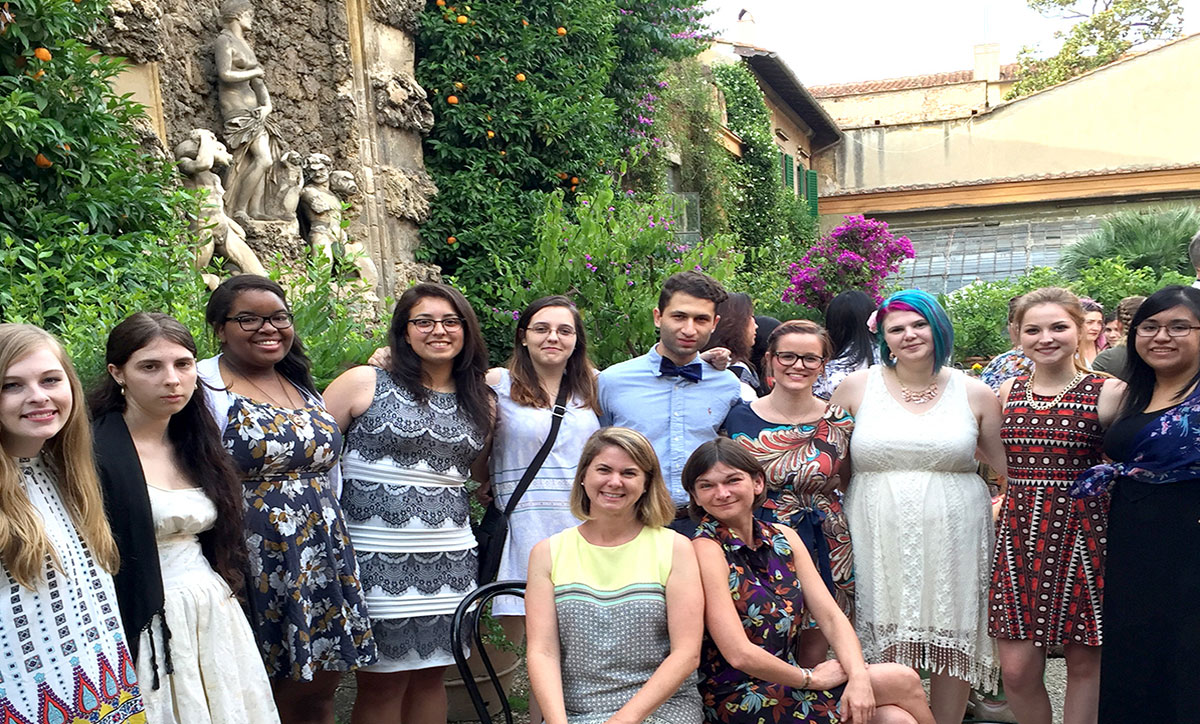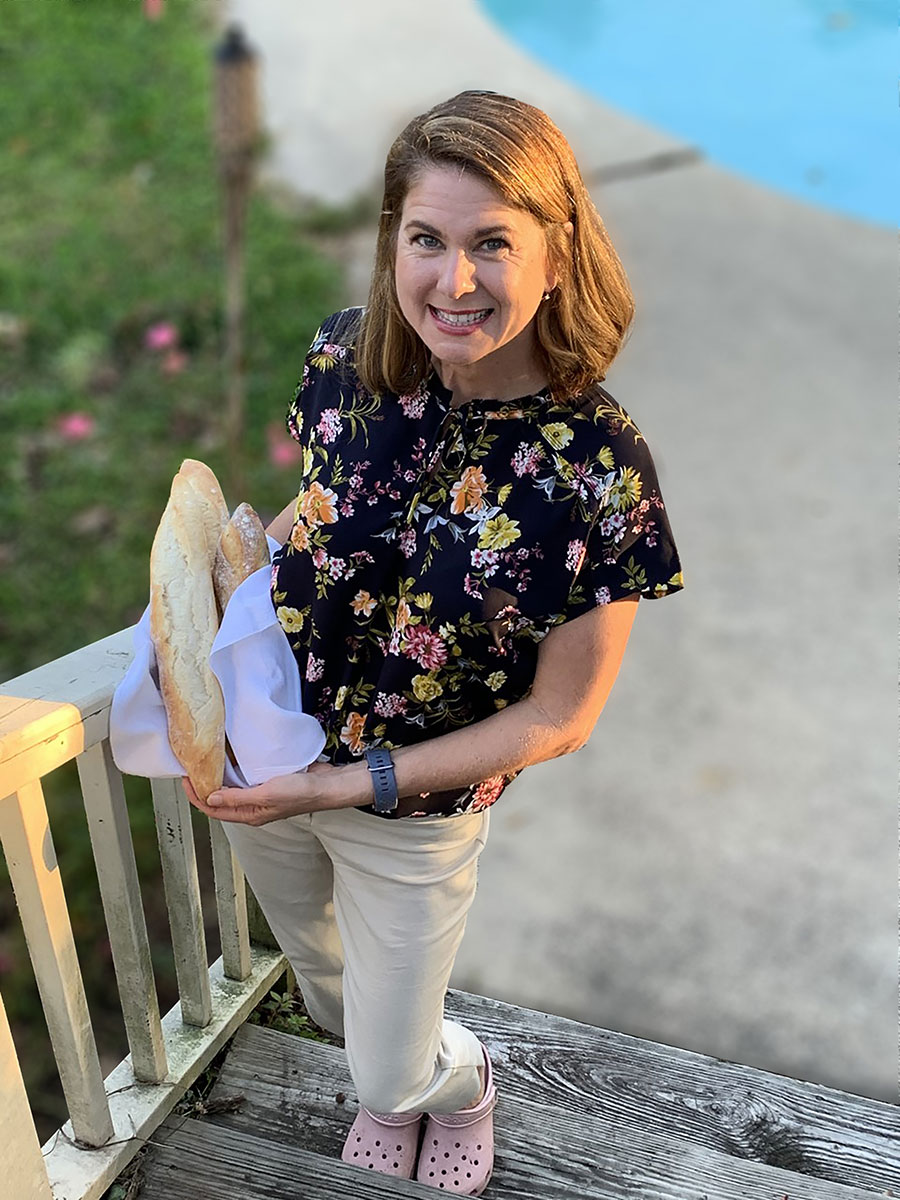Rebecca Boone, Wooster professor of history, woman of many talents

To say Rebecca Boone is a polymath is a bit of an understatement. Lamar University’s Dr. Ralph and Edna Wooster Endowed Professor of history is the author of three books, a certified fitness instructor and mother, as well as the founder of Slow Food Beaumont, a non-profit organization which focuses on local cuisine and building up civic engagement through food.
“I thought we had a great culinary heritage in Beaumont,” she said. “We have traditions from Louisiana and mexico. We have the bounty of the sea and Texas barbeque. I thought this would be something that could boost morale and improve our quality of life in Beaumont. It is something we can be proud of.”
Boone founded Slow Food Beaumont in 2013.
“It required me to write 23 pages of essays about the geography and culinary history of the town,” she said. “It is the chapter of a non-profit organization that has 300 chapters all over the world including places like New York, Austin, Tokyo and London. It was a big honor to get approval.”
Slow Food Beaumont also started a discount farmers market.
“It provides produce in food deserts, which are areas that do not have grocery stores,” Boone said. “We take surplus from the farmers market and we sell it very cheaply. We want to help the farmers out while also getting fresh fruits and vegetables to those who do not have access to them.”
Slow Food Beaumont celebrates people coming together to enjoy meals, but since the COVID-19 pandemic started, the organization has had to find other ways to encourage civic engagement.
“We did support a culinary art student at Lamar with a small scholarship,” Boone said. “That is something we do every year. We are also trying to figure out how we can help local restaurants who are suffering because of COVID-19.”
The most rewarding part of starting Slow Food Beaumont is building pride in her city, Boone said.
“I do not know how much we have contributed,” she said. “However, I can say after I started Slow Food Beaumont, we have much better restaurants. We have local culinary talent that is starting to put Beaumont on the map. It is becoming a food destination.”
Boone’s academic specialty is Renaissance history and that led to the food movement.
“Slow Food started in Northern Italy,” she said. “I did research in Turin for my dissertation.”
Boone has also taken study abroad trips to Germany and Greece.
“I took my kids and about 16 students to Germany,” she said. “Greece involved an eight-day cruise and, we studied sacred architecture. Also, in one summer, there were four study abroad trips to Florence, Italy, where I taught renaissance and reformation.”
On these trips, students learn about human nature and condition not from the study of the topic but from being with each other for so long, Boone said.
“They are with 15 other students and thrown into this world that is different,” she said. “They are all in the same boat of feeling culture shock and trying to get by. It builds character.”
The study abroad trips and other travels provided inspiration for some of her books, Boone said.
“I would say they inspired the ‘Real Lives in the Sixteenth Century: A Global Perspective,’” she said. “On the trip to Greece, we went to Istanbul, and there is a story of a slave from the Ottoman Empire. In that story, which is set in the 16th century, she becomes the Sultana.”
Boone’s wrote other books are “War, Domination, and the Monarchy of France” and “mercurino di Gattinara and the Creation of the Spanish Empire.”
“Real Lives in the Sixteenth Century: A Global Perspective,” was her favorite to write, Boone said.
“It was my favorite because it was for a general audience and not just for professors,” she said. “Also, because of the parallel biographies. You get to see people in similar situations, but they are in different societies. It is a good way to get students interested in learning about these different societies through the life stories of the people. The other books are more about political theory and political thought in the 16th century in France, Spain and Italy.”
Boone’s first book, “War, Domination, and the Monarchy of France,” took 15 years to write.

Boone is the founder of Slow Food Beaumont, a
world-wide movement that promotes civic engagement
through food. Her specialty is her home-made bread.
“I began writing it as a dissertation at Rutgers University, and then it became a book at Lamar University,” Boone said. “It took a while because I had a lot of things to learn including Latin, French, Italian, German and, eventually, Spanish. It is about a man from Northern Italy, who worked for France and wrote in Latin. German people had written about him, so I had to read those books.”
Boone wrote an essay about her research in teaching and service that helped her become Lamar’s first Wooster Professor in September.
“Ralph Wooster was a professor in the history department for decades,” Boone said. “His son, who is also professor of history, gave our department money to have an endowed professorship. Every professor will have two years with this honor. The money is for research projects.”
Boone said her research will be on human sacrifice, historiography and apocalypticism.
“I am interested in the way people look at history from an apocalyptic perspective,” she said. “I’m looking at the ways it is related to ideas of death and destruction as cleansing and purifying from a historical standpoint.”
Boone said she believes students can do anything with the right attitude.
“I believe there are three reasons why people do not do things,” she said. “One is they are afraid, two is they feel like they are not good enough, and three is that they feel like they do not deserve it. The fact is all of those are ridiculous reasons not to do something.
Even though it may sound selfish, Boone said students have to tell themselves the exact opposite of this.
“With all the travels and study abroad trips I have done, I have spent a ton of money on myself,” she said. “Do I feel guilty about it? No. Did I use this money to further my education, so I could educate others? Yes. You have to keep asking yourself what the benefit is, and sometimes benefitting yourself benefits other people.
“Its only extravagant if you never turn it into something beneficial.”
